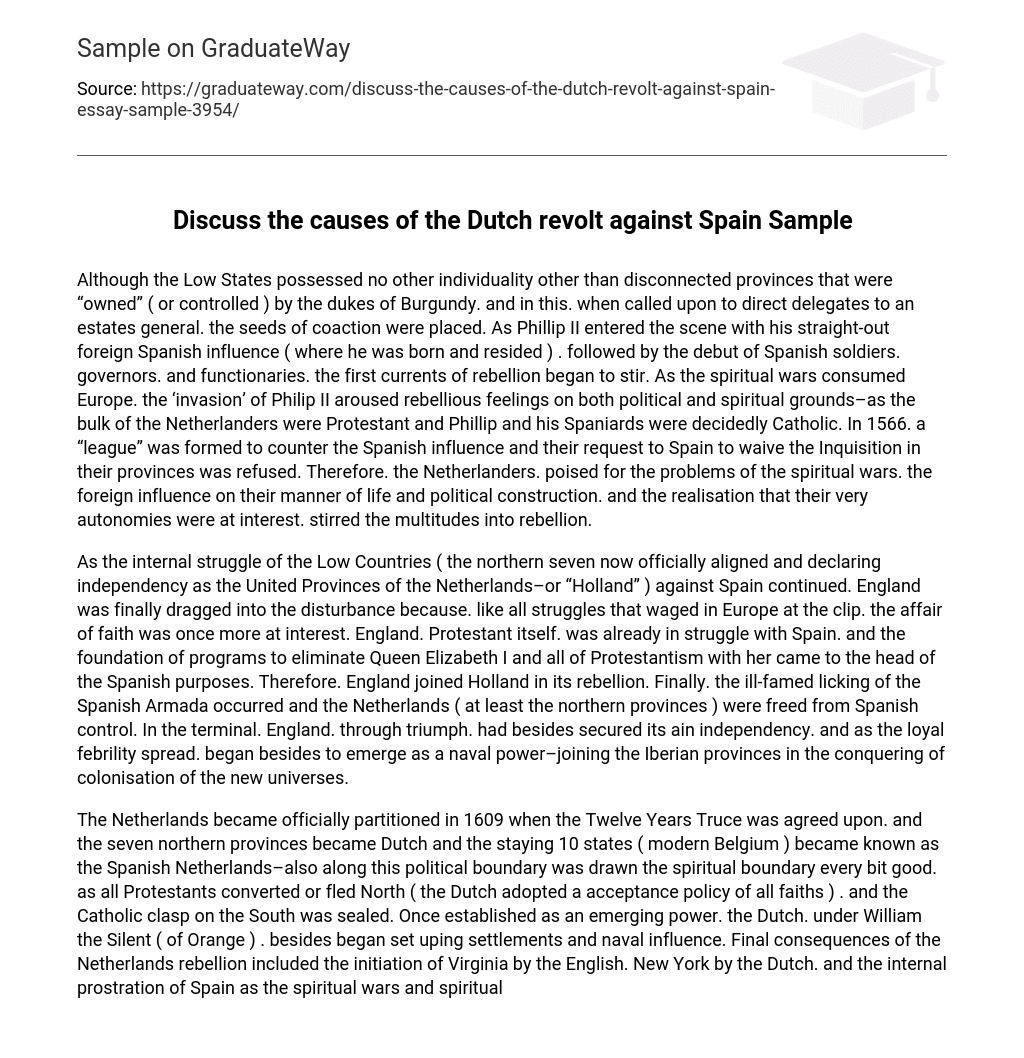Although the Low States possessed no other individuality other than disconnected provinces that were “owned” ( or controlled ) by the dukes of Burgundy. and in this. when called upon to direct delegates to an estates general. the seeds of coaction were placed. As Phillip II entered the scene with his straight-out foreign Spanish influence ( where he was born and resided ) . followed by the debut of Spanish soldiers. governors. and functionaries. the first currents of rebellion began to stir. As the spiritual wars consumed Europe. the ‘invasion’ of Philip II aroused rebellious feelings on both political and spiritual grounds–as the bulk of the Netherlanders were Protestant and Phillip and his Spaniards were decidedly Catholic. In 1566. a “league” was formed to counter the Spanish influence and their request to Spain to waive the Inquisition in their provinces was refused. Therefore. the Netherlanders. poised for the problems of the spiritual wars. the foreign influence on their manner of life and political construction. and the realisation that their very autonomies were at interest. stirred the multitudes into rebellion.
As the internal struggle of the Low Countries ( the northern seven now officially aligned and declaring independency as the United Provinces of the Netherlands–or “Holland” ) against Spain continued. England was finally dragged into the disturbance because. like all struggles that waged in Europe at the clip. the affair of faith was once more at interest. England. Protestant itself. was already in struggle with Spain. and the foundation of programs to eliminate Queen Elizabeth I and all of Protestantism with her came to the head of the Spanish purposes. Therefore. England joined Holland in its rebellion. Finally. the ill-famed licking of the Spanish Armada occurred and the Netherlands ( at least the northern provinces ) were freed from Spanish control. In the terminal. England. through triumph. had besides secured its ain independency. and as the loyal febrility spread. began besides to emerge as a naval power–joining the Iberian provinces in the conquering of colonisation of the new universes.
The Netherlands became officially partitioned in 1609 when the Twelve Years Truce was agreed upon. and the seven northern provinces became Dutch and the staying 10 states ( modern Belgium ) became known as the Spanish Netherlands–also along this political boundary was drawn the spiritual boundary every bit good. as all Protestants converted or fled North ( the Dutch adopted a acceptance policy of all faiths ) . and the Catholic clasp on the South was sealed. Once established as an emerging power. the Dutch. under William the Silent ( of Orange ) . besides began set uping settlements and naval influence. Final consequences of the Netherlands rebellion included the initiation of Virginia by the English. New York by the Dutch. and the internal prostration of Spain as the spiritual wars and spiritual chase negated the full on the job category. and spiritual persecution ran the lone workers ( the “Muslim” Moriscos ) from the country–thus. by 1640. Portugal had once more freed itself from the Spanish yoke.





